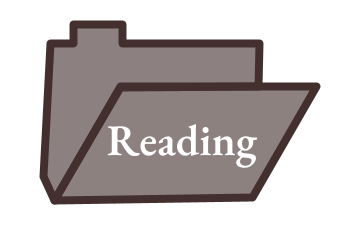Jack Kerouac - Novels and Biography
Recommended to me by friends, reading Jack Kerouac was a trip I was not expecting to take. Wanting a break from my Murakami mania, I sought simplicity in Jack but (not to be over dramatic) chaos ensued. I started with the infamous On The Road.
The best way I could describe the On The Road experience is an anthology of manic states. You are transported from one character's stupid idea to the next, destroying worlds on your way. If you've ever been around someone who has gone a bit manic, sometimes they may say something of note but you can't tell if it's something accidental or maybe you're being dragged into their world. But even if you wanted to stay and grab on, it continued onto the next thing and so on. Contributing to this manic-like story is Kerouac's manic style prose. Long run-on sentences, cutting from narration to meta-commentary, to highly detailed descriptions, to philosophical thoughts, Kerouac is something you feel instead of read. Or at least that's what I tell myself to get through his books.
My favorite moment from this book is the argument between Camille and Dean. At this moment in the book, I was all in: roaming around North America, free to all of life's adventures. But Camille brought me down to the realities of society, and laid it all on Dean, and rightfully so. It feels as though Camille is yelling at the reader, telling us that "It never occurs to you that life is serious and there are people trying to make something decent out of it instead of just goofing all the time.", The narrator Sal replies by confirming that Dean was "the HOLY GOOF". This moment started the conversation in my head whether the Kerouac/Beat generation way of life is right.
After On The Road, I moved onto The Subterraneans. For context, Kerouac wrote this novel over three days and three nights. With no surprise, it reads like a book written over that time span. The concept is pretty simple from the start, boy meets a girl, they fall for each other but it isn't meant to be. But the madness rarely comes from its starting concept but how it is unraveled into a complicated mess, like a dog running away with the toilet paper roll. I believe that this book, despite its ability to captivate its reader, misses any real substance which makes the reader feel something deeply like with parts of On The Road. Again, if you follow a manic person they are destined to drop gems, and there are a few to be picked up in this book, including my favorite quote "I would have preferred the happy man to the unhappy poems he's left us”.
I reached my breaking point with The Subterraneans, Kerouac's prose was just not for me. Yet, his stories being so enticing I sought out his own with reading Jack's Book, an oral biography of Kerouac's life. This book is a masterpiece in my opinion. Viewing the stories his novels were based on described in full detail with stories added directly from interviews with all the key characters. With such uncertainty in my life, as I assume is similar to many other university students, hearing the journey of a young man who desired something different and new was inspiring. Reading the book, Kerouac seemed like someone who lived on his own terms, with a thirst for people, places, and experience. The interviews with other people added an interesting layer. With disagreements of how things were meant, differences between the book and reality, and their thoughts on the man who inspired a generation, their insights were invaluable. Although the ending was quite sad (like it is in most posthumous biographies), the book teaches the reader that there are always new experiences for those that yearn for them.
With my new found inspiration and belief in Kerouac's life, I jumped into The Dharma Bums. It felt nice to jump back to where I felt Kerouac belonged: on a train bound to somewhere new on the road. This book soon takes a more philosophical turn, with a heavy focus on Buddhism. With this new fuel to their fire, the characters seem more manic than ever. Climbing mountains, performing rituals, running away from parties, these Budhists are not exactly sitting still and keeping calm. The prose in this novel is bearable. There are sparse philosophical debates throughout the book which I found interesting but at times felt like I was eavesdropping on a tedious conversation. The book dragged after they got down the mountain. The peak of the story is when the narrator Ray has his "everything was like Jazz" moment. After that it is a blur of travels, parties, debates and character names.
The Windup Bird Chronicle - Haruki Murakami
I’ve spent a long time trying to think of a way to describe a Murakami book, specifically The Windup Bird Chronicle. Literary snobs might argue that Murakami uses the supernatural as a metaphor to illuminate the spiritual journey of his characters, some might say that Murakami constructs an intertwined set of symbols that lead to a deeper reading experience, and others might just describe his books as strange. All these may be true to some extent. But I believe they don’t grasp what it feels like to read one of his books, and that is what is important. Murakami books are less about meaning and more about feeling, especially when it comes to The Windup Bird Chronicle.
The feelings present when reading The Windup Bird Chronicle can only be described as dreamlike and strange. It feels like I’m watching someone else’s dream - strange around every corner, yet so familiar. The most obvious occurrence of this strangeness is the horror and supernatural present in his books. From a ceiling full of human scalps, cutting off someone’s head and placing it on a toilet, and a bunch more other graphic descriptions which I would rather not remember, the novel can be gross. Murakami’s intense descriptions entice a visceral reaction out of the reader and bring them deeper into the book. A multi-page description of someone being skinned alive is something that is hard to read casually. Adding to the strangeness, is the novelty of his horror. Murakami ventures beyond the conventional ghosts and monsters under the bed, introducing readers to uncharted territory.
However, Murakami seems to be able to prolong the strangeness past these acute events. A large contributor to this is the pacing. Murakami lets the story breathe. Descriptions can be long and specific, and characters that might seem irrelevant are stressed. Plot points might seem useless at times, but Murakami manages for it all to be understood in context. This unique pacing contributes to the theme of loneliness and confusion the protagonist feels. We follow a character who is lost and doubtful of the world he sees around him. The book does a good job of reflecting this idea in its lethargic and chaotic pacing.
I believe the most important aspect of how the book makes you feel is its aesthetic, or lack thereof. Many forms of media are characterized by repetitive aesthetics or ideas. Harry Potter movies create a youth academic aesthetic, Marvel movies have their easter egg style comedies. Even with strange and chaotic stories like those created by A24, an aesthetic is followed which becomes predictable and mundane. Somehow, The Windup Bird Chronicle was separated from that in my experience. His way of describing things, connecting the familiar with the fantastical, all seemed totally new. It was something that didn’t lessen as the book went on, he kept surprising me. There is a certain indescribable feeling that comes from a story or object which lacks a predictable aesthetic. Something so confusing and new that it seems to knock the reader out of routine and mundanity. In my experience, this is what allows Murakami books to be truly strange, not the body horror, graphic content, or set of deeper symbols. This can be as simple as the way he relates things. For example, he describes someone’s matching outfit as “like making a niche in the wall the exact shape of a refrigerator”. It is an idea that I’ve never thought about but something that I’ve seen my whole life. Sentences like that are consistently giving you a feeling of confusion while remaining grounded in the story. It often feels as if Murakami is trying to say something extremely important to you but the idea is always just out of reach.
There are multiple reasons why I believe that The Windup Bird Chronicle is less about meaning and more about feeling. One of these is just personal experience, I naturally felt myself focus on reacting to his writing rather than trying to figure it out. This could be due to the fact that a lot of the book is about introducing new concepts rather than fleshing out ideas. This lead me to treat the book as exploring these concepts and the feelings they brought up. The way he ends his books also emphasizes this. There is no big reveal about all his underlying meanings, the story just drifts away.
There is much more to be said about The Windup Bird Chronicle both good and bad which may require a more lengthy report. But to end it off, here are some of my favorite quotes to try out the Murakami feel for yourself.
- “Going bad is something that happens over a longer period of time”
- “Dying embers can always rekindle.”
- “I loved watching her at the dinner table as she talked with enthusiasm about her work. This, I told myself, was “home”. We were doing a proper job of carrying out the responsibilities that we had been assigned to perform at home. She was talking about her work, and I, after having prepared dinner, was listening to her talk.”
- “We convince ourselves that we know the other person well, but do we really know anything important about anyone?”
- “I’d be smiling and chatting away, and my mind would be floating around somewhere else, like a balloon with a broken string.”
Foundation Series - Isaac Asimov
When I’m much older, I believe that my memory of my first year at university will be inseparable from my journey through the Foundation series. Throughout my classes, exams, parties, and setbacks, those seven books accompanied me. At times they served as my intellectual stimulation and my distraction at other times. Foundation, Foundation and Empire, Second Foundation, Foundation’s Edge, Foundation and Earth, Prelude to Foundation and Forward to Foundation. When I hear each title I can remember that month, the tests I had, and the place where I read that book. Whether it was my reading chair after a long day of studying for midterms, or at a cafe enjoying my time off, the Foundation series became intertwined with my university experience.
One of my favourite aspects about the series is the timeline. The books span over 500 years, and are also a part of the greater Isaac Asimov universe which includes the Galactic Empire and Robot series. In total, they span over 20,000 years. Due to the large timeline, many characters will appear and die offscreen. Additionally, a lot of the action appears off-screen. At least for the initial few books, each individual is not important. Altogether, this reinforces the psychohistorian idea that individuals are unpredictable but a large enough mass of people move in predictable ways. In my experience, this shifted my focus away from the evolution of certain characters and onto the evolution of the Foundation as a whole. The main character becomes the relationship people have with the Seldon Plan. This relationship is strained and leads to problems throughout the entire series, proving to be the sole recurring motif.
Another notable aspect of the series is its focus on social sci-fi. Most science fiction books reside in the hard sciences; biology, computer science, physics, etc. Foundation however deals with sociology, psychology, and history. However, it does so by using hard scientific methods in the traditionally statistically loose soft sciences. This concept filled a void which I believe many universities miss. My first few years of university were spent fighting between the intriguing concepts in social sciences and the intricate methods of the hard sciences. It feels as if it is an unwritten rule that these two sections of the university never meet. But in the Foundation series I found comfort, reassuring me that bringing these worlds together is possible, even if only in our imagination.
During midterm season or just when I needed to get away for a while, the foundation series was able to immediately absorb me. A major reason for this was the amount of turns and double-crosses through the series. Although the first couple of books are world-building, the meat of the series has story lines which are engaging throughout but also feature endings and turns which make you lean back agasp. Reading these books feels akin to assuming the role of a detective, where you are presented with a story and tasked with uncovering the truth behind the deception.
I do believe that the series has troubles deciding where to go. The series mainly carries on its concepts rather than its story. Although Asimov can always wind up a twist and a turn, if you sit back and ask where we’re going you will get a bit confused. Once we bring in mentalics, Gaia, and start following Golan Trevize, it takes a second to remind ourselves why these books have ‘Foundation’ in the title. In the end, Trevize chooses Gaia over the Foundation and it is revealed that Robot Daneel Olivaw was the puppet master all along. This ending was not fun for me. I longed for some rationale behind the triumph of mathematics, finding that more inspiring than the fictitious mind-reading planet.
I almost forgot about the prequels, and rightly so. There is not much to say about the prequels. They serve as a means of further world-building and allow us to see Hari Seldon, who had been mentioned but rarely seen. Introducing Daneel Olivaw as the puppet master in Foundation and Earth adds another layer to the detective-style when reading the prequels.
Overall, good books or not, reading Foundation is an experience I will never forget.



